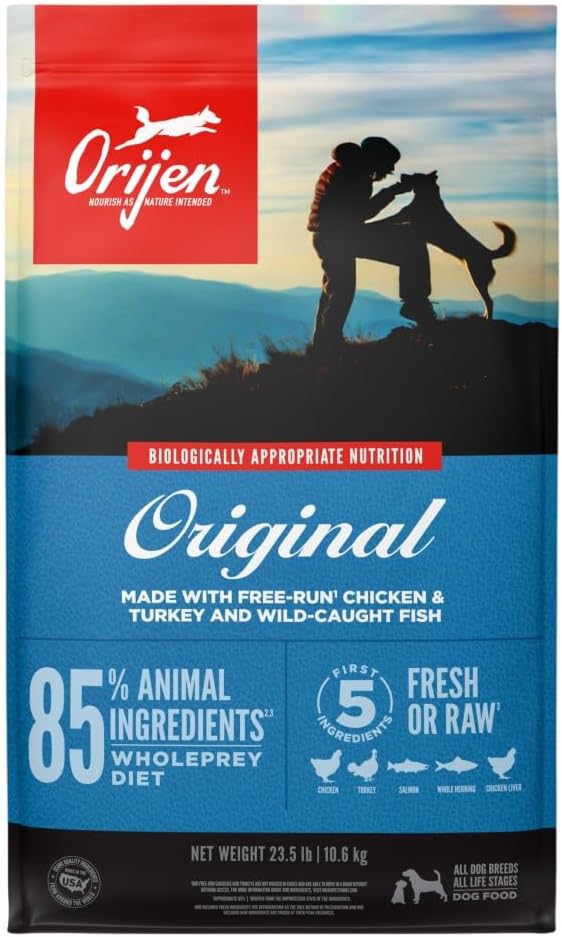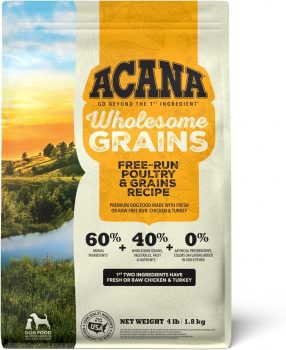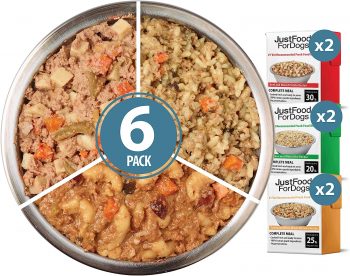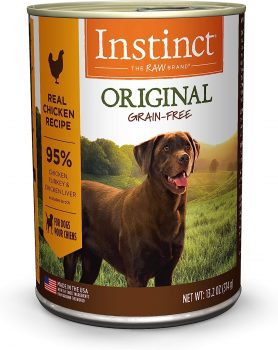Siberian Huskies are known for their stunning appearance and vibrant energy. They have unique dietary needs and are originally bred to pull sleds in harsh Arctic conditions. This comprehensive guide will delve into the ideal diet for Huskies, ensuring optimal nutrition for their health and vitality.
Understanding a Husky’s Nutritional Requirements
Huskies require a balanced diet that includes proteins, fats, carbohydrates, vitamins, and minerals. Protein is vital for muscle maintenance, fats for energy and coat health, carbohydrates for additional energy, and fiber for digestive health. The right balance of these nutrients is essential for a Husky’s overall well-being.
Our 5 Top Foods for Huskies
The diets were selected by our founder Justin Palmer, a certified canine nutrition expert, specifically with Huskies in mind:
| Food | Pros | Cons |
|---|---|---|
|
|
|
|

Check Today's Price on: |
|
|

Check Today's Price on: |
|
|

Check Today's Price on: |
|
|

Check Today's Price on: |
|
|
High-Quality Protein: The Foundation of a Husky’s Diet
Protein is crucial for Huskies. It supports muscle development and repair, essential for this active breed. High-quality protein sources such as lean meats, fish, and eggs should constitute a significant part of their diet. The amino acids in these proteins are critical for a healthy Husky.
The Role of Fats in a Husky’s Diet
Fats are a primary energy source for Huskies and are essential for maintaining their thick, lustrous coat. Omega-3 and omega-6 fatty acids are particularly beneficial in sources like fish oil, flaxseed, and certain meats. They help keep their skin healthy and their coat shiny.
Carbohydrates and Fiber for Energy and Digestive Health
While proteins and fats are more emphasized, carbohydrates are also crucial for energy and fiber in a Husky’s diet. Good carbohydrate sources include whole grains, vegetables, and certain fruits. These provide the necessary energy for their active lifestyle and aid in healthy digestion.
The Importance of Vitamins and Minerals
A balanced diet must also include an appropriate mix of vitamins and minerals. These support various body functions including immune health, bone strength, and metabolic processes. Commercial dog foods are usually fortified with these essential nutrients.
Hydration: Ensuring Your Husky Drinks Enough Water
Huskies need constant access to fresh, clean water. This is vital to prevent dehydration, leading to serious health issues. Especially after exercise, it’s essential to ensure they rehydrate adequately.
Feeding Schedule and Portion Control
Two meals a day are generally recommended for Huskies. Portion control is crucial to prevent obesity, which can be a concern in less active Huskies. The portion size varies depending on the dog’s age, size, and activity level.
Dietary Needs of Husky Puppies
Husky puppies have different dietary needs compared to adults. They require more calories and specific nutrients to support their growth. Puppy-specific formulas, which cater to their developmental needs, are recommended.
Managing Health Issues Through Diet
Huskies are prone to specific health issues, such as hip dysplasia and eye problems. A diet that supports joint health and is rich in antioxidants can be beneficial. Always consult a veterinarian for dietary recommendations, especially for dogs with health issues.
Kibble, Wet Food, or Raw? Choosing the Right Food for Your Husky
The options for feeding Huskies include kibble, wet food, and raw diets. Each has its advantages and disadvantages. High-quality kibble is convenient and balanced, while wet food is more palatable. Raw diets offer freshness but require careful preparation.
Supplements: Necessary or Not?
While a well-balanced diet should provide all the necessary nutrients, some Huskies might benefit from supplements like glucosamine for joint health or omega-3 fatty acids for coat quality. Consult with a vet before adding supplements to your Husky’s diet.
Safe and Unsafe Human Foods
Some human foods, such as lean meats and certain vegetables and fruits, are safe for Huskies in moderation. However, avoid foods like chocolate, grapes, onions, and anything containing xylitol, as they can harm dogs.
The ideal diet for a Husky caters to their unique nutritional needs and supports their active lifestyle. A balance of high-quality proteins, fats, carbohydrates, vitamins, minerals, and plenty of water, is key to their health. Regular consultations with a veterinarian can ensure that your Husky’s dietary needs are met as they grow and their needs change. Remember, a well-nourished Husky is a happy, energetic companion.
 Check Today's Price on:
Check Today's Price on:
 Toledo, United States.
Toledo, United States.